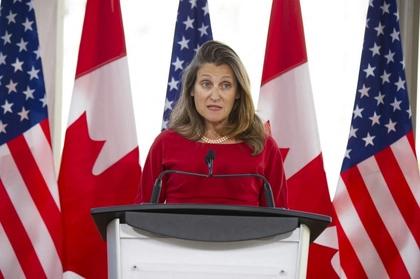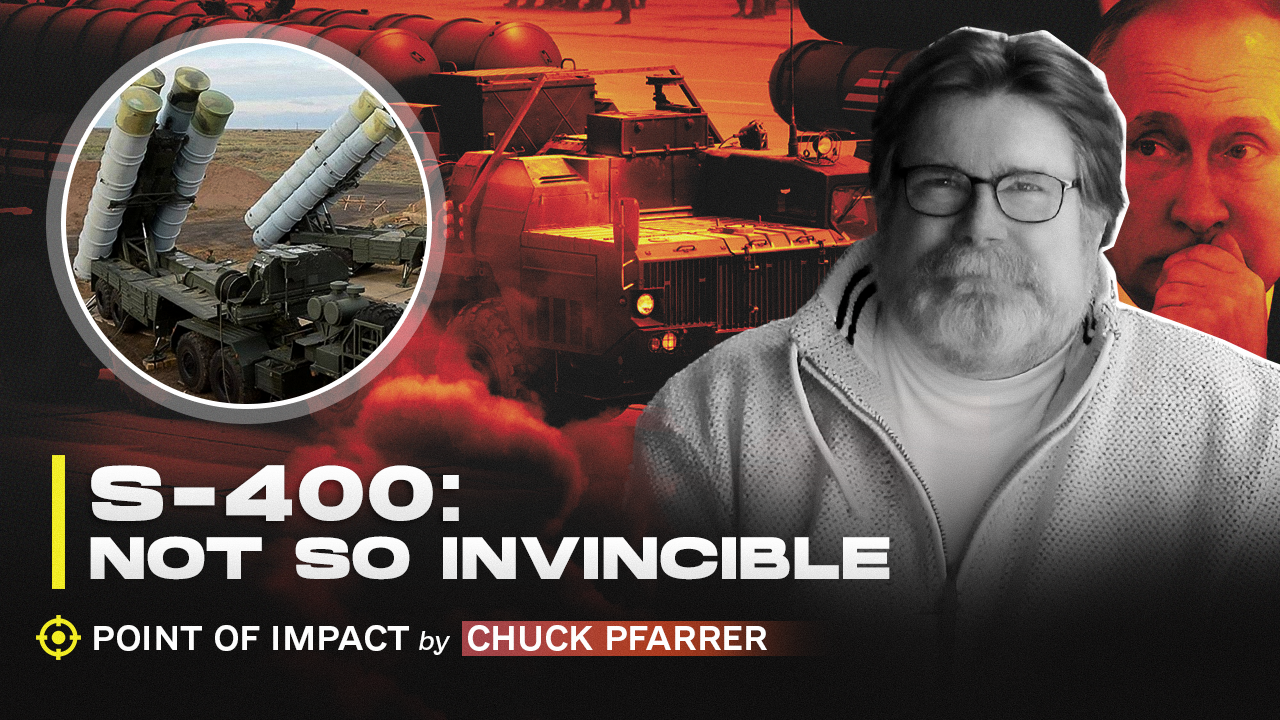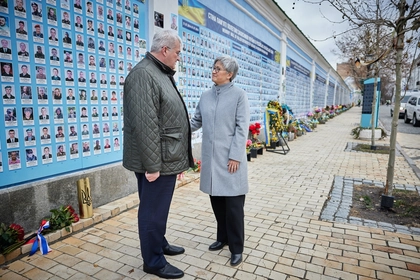The experience gained from the more than 200 negotiations Russia has signed up to amply demonstrates the futility of engaging the Kremlin in peace talks. Russia sees negotiations merely as another weapon to use against its opponents.
That absence of good faith has been repeatedly shown during nearly 11 years of the war in Ukraine and was reaffirmed on 14 June, when Putin reiterated his terms for “negotiation.” His demands are tantamount to a call for a Ukrainian capitulation as a crucial step to achieving strategic parity with the US and China.
JOIN US ON TELEGRAM
Follow our coverage of the war on the @Kyivpost_official.
To negotiate or not?
France and Germany failed to negotiate peace between 2014 and 2022 because of a lack of leverage. Russia was willing to use all means to secure its victory in Ukraine. In contrast, the West held back from using most of its tools. Unfortunately, President-elect Donald Trump seems determined to make the very same mistake.
Lacking political bravery and strategic clarity, describing a confrontation between Russia and the West as a so-called “Russia-Ukraine War” only, the US is not in the position to force Russia to accept a peace deal that does not serve its interests. To change Russia’s strategic appraisal, the US must find the courage and introduce tools it has repeatedly shown itself unwilling to use.
Without Ukraine, Russia ceases to be an empire, but with Ukraine suborned and then subordinated, Russia automatically becomes an empire.
Why Russia would turn down a US peace plan
Putin will not let himself be dictated by the US. Russia sees itself as equal to the US and China and will consequently, not accept being dictated to. Being willing to use all means and accept higher risks and costs than the US, the latter will be negotiating from a position of weakness. Giving in to US demands would undermine the regime, its coalition of autocracies and Russia’s global standing.

Canada’s Chrystia Freeland – A Personal View
Giving up on Ukraine means giving up its imperial ambitions. As Zbigniew Brzezinski, the former US National Security Advisor, said: “Without Ukraine, Russia ceases to be an empire, but with Ukraine suborned and then subordinated, Russia automatically becomes an empire.” While Russia’s aspirations go far beyond Ukraine, the latter is crucial to its imperial ambitions. It is either victorious and a future Great Power or defeated and forever a pariah state. This is in a sense, an existential war for Russia, albeit of its own making.
The US lacks leverage. President Joe Biden has fallen victim to Russian reflexive control tactics, fearing a hypothetical World War III. He is unwilling to use US military power to end the war or even send US forces to enforce a (temporary) peace agreement.
President-elect Donald Trump strongly objects to permitting Ukrainian strikes inside Russia with US-produced weapons. He has signaled that he would “probably” reduce aid to Ukraine. Trump opposes Ukrainian NATO membership.
His ability to ramp up defense support to Ukraine as a response to Russian unwillingness to bend to his will is limited. The administration is already voicing concern over stockpiles as Biden surges military aid for Ukraine. The Pentagon says it has reached the limit of weapons it can send to Ukraine monthly without compromising the US’s own combat capability. Neither the US nor the European defense industry are in a position to meet the urgent needs for weapons and ammunition.
Trump has already shown his cards, and he is left without leverage. Russia perceives the US as divided and indifferent to European security.
Russia must defeat Ukraine today to be able to challenge NATO tomorrow.
The window of opportunity
The decision to start a full-scale war was made after 15 years of testing NATO’s political will and military capability. It was made at a unique strategic window of opportunity. The US was busy tearing itself apart; the transatlantic link was in tatters after the first Trump presidency.
NATO was historically weak after three decades of underfunding, downsizing, reorganization and streamlining. It lacked leadership. The Alliance had grossly failed to rebuild its military power after the war started in 2014, signaling the weakness we have since witnessed. Additionally, the EU suffered from internal discord, including the aftermath of Brexit.
While (irresponsibly) late, the Alliance has, however, started the process of rearming and will be ready to face off against a resurgent and aggressive Russia in 5-10 years time. Russia must defeat Ukraine today to be able to challenge NATO tomorrow.
According to Bruno Kahl, Head of the German Federal Intelligence Service, “Russia is preparing for war with the West.” He believes Russia will be capable of “attacking the West” by the end of the decade. Others warn about an increasing risk of a military conflict between NATO and Russia as soon as in two – five years, stressing that “the continent has entered a “pre-war era“ for the first time since World War II.”
Strategic initiative. Conditions on the ground are not conducive to a deal as Russia retains the strategic initiative. President Putin believes he is winning. Russia is making progress on the battlefield in Ukraine, the EU, and the US. Trump is pushing for negotiations to appease the Kremlin. While the EU has just recently started discussing sanctions over Russia’s hybrid war in Europe, NATO has yet to acknowledge that it is exposed to Russian aggression which neither is fully prepared to counter. A coalition of CRINK (China, Russia, Iran and North Korea) autocracies emboldened by Western inaction and indecisiveness, is emerging.
Russia risks losing the initiative if it accepts a (temporary) peace agreement. The fall of the Assad regime makes it even more imperative to demonstrate its “greatness.”
From a Russian perspective, a (temporary) peace will make sense if the agreement strengthens its strategic advantage.
Why Russia would accept a US peace plan
Strategic pause. Russia has suffered more than 750,000 casualties and is struggling to recruit enough volunteers to sustain its military efforts. Being unable to replace its losses of equipment with newly produced weapons, it is slowly running out of tanks, armored personnel carriers and artillery. The International Institute for Strategic Studies (IISS) believes that Russia can sustain its assault on Ukraine only for about two or three years. Other experts believe Russia will reach a “critical point of depletion” in 2025 already.
Ukraine has the initiative in cyberspace, space, and the maritime domain. Russia has become increasingly dependent upon China, North Korea and Iran for ammunition, personnel, machine tools, microelectronics and dual-purpose technology. Its potential loss of bases in Syria might have major implications for its ability to project power in the Mediterranean Sea, threaten NATO’s southern flank, and operate in Africa. Its economy is facing a meltdown.
Russia would benefit from a temporary pause, depending on what concessions the West is willing to make.
There should be no illusions that a just peace can be bought by showing weakness. Peace is a reward only for the strong.
Western concessions meet Russian demands. From a Russian perspective, a (temporary) peace will make sense if the agreement strengthens its strategic advantage. Russia has already signaled what these are: No Ukrainian NATO membership; the freezing of the front line along the administrative borders of the Luhansk, Donetsk, Zaporizhzhia and Kherson regions as defined in the Russian constitution (and consequently, the territorial waters and exclusive economic zone around Crimea and all of the Sea of Azov); “demilitarize” Ukraine; the “removal” of President Zelensky from office; and not least, the lifting of Western sanctions. This is (with some exceptions) more or less according to the plan proposed by Keith Kellogg, Trump’s special envoy for the Russo-Ukrainian war.
Additionally, Russia will likely insist the US reverses the policy allowing Ukraine to use Western-provided long-range weapons to strike into Russia and institute a demilitarized zone to force Ukraine to move its defensive positions further west.
All of this will not only strengthen Russia’s likelihood of success in its next attack on Ukraine but will also help to divide NATO. Poland, the UK, France, the Netherlands, and the Nordic and Baltic countries will likely recognize the folly of such a plan.
Ukraine will remain vulnerable to future attacks. A peace plan acceptable to Russia will leave Ukraine as a gray zone country (non-NATO member) and without any security guarantees worth the paper they are written upon. Equally important, once the sense of urgency is gone, Western support for Ukraine will probably decrease. Ukraine might find itself unable to fund and equip the huge standing army its future security depends upon – knowing that it has less territory to trade to absorb the next assault at a time and place of Russia’s choosing.
The next assault will destroy what’s left of US credibility. Russia is after all waging war to achieve strategic parity with the US and China. The so-called “Russia-Ukraine war” was always a confrontation between Russia and the West. Western democracies are Russia’s enemy. It is reflected in its strategic documents; its stated aim and objectives; its threat perception; its public statements and rhetoric; its ultimatums, its nuclear threats and not least, its aggressive actions.
Collapsing a US-imposed peace plan, guaranteeing the security of Ukraine, would undermine US credibility and global standing. It is in Russia’s interest to make sure that the peace is temporary and to embarrass the US by demonstrating Russian military “might.”
Good faith or not: The test
President Zelensky has said, “There should be no illusions that a just peace can be bought by showing weakness. Peace is a reward only for the strong.
Having experienced the costs of the US and European weakness first-hand, Ukraine should know. Hence its “peace through strength” approach. Ukraine’s experience, however, is shared by all European countries that remember occupation and the horrendous costs of oppression.
Only the ignorant or the extreme cynics seek negotiations with Russia from a position of weakness.
The peace through strength approach must be introduced in a peace agreement to test Russia’s willingness to negotiate in good faith. If Russia truly wants peace, it will not object to:
- Ukrainian NATO membership. Membership in a defensive alliance that has never attacked either the USSR or Russia will constrain Ukraine.
- NATO forces being deployed as peacekeepers along the front line. This will stop Ukraine from trying to liberate the occupied territories.
- NATO forces being deployed across Ukraine. This will ensure strategic transparency as well as the quickest possible introduction of NATO standards across the Ukrainian Security and Defense sector to ensure Ukrainian compliance.
These measures might help convince Ukraine to make compromises without putting its future existence at peril. It would also help establish hope for a future peaceful return of the occupied territories by diplomatic means (e.g. gradual lifting of sanctions).
“I insist that no leader in the world has the right to negotiate with Putin on behalf of Ukraine. We have never delegated this mandate to anyone:” President Zelensky.
Will Russia accept or not?
Negotiations cannot solve the war’s cause: Russia’s ‘Great Power’ ambitions. This can only be denied through military power.
Putin will reject any peace negotiations plan proposed by Trump that does not account for Russia’s so-called “security concerns.” Russia has repeatedly claimed that it is ready to resume “negotiations” if Ukraine understands the “realities on the ground“ and accepts Putin’s preconditions.
Ukraine is not the enemy but a prerequisite for Russia’s Great Power aspirations. From a Russian perception, it is a fundamental war that it cannot afford to lose. It will not give up its attempt to subjugate Ukraine. If Russia accepts a peace plan, it will be because the peace plan lays the foundation for its future victory.
If Russia accepts a US-proposed peace plan, bearing in mind that the US lacks strategic leverage, Europe and the US are in trouble. It means Trump has given Putin what Russia demands, and he will be in a much better position to renew his assault on Ukraine in the future. Equally important, the West will once again have demonstrated its feebleness.
A Russian objection will demonstrate its aggressive intent. Ukrainian NATO membership would effectively curtail its Great Power ambitions. Not only would the Alliance guarantee Ukraine’s independence and sovereignty but Ukraine would also greatly strengthen NATO militarily.
“I insist that no leader in the world has the right to negotiate with Putin on behalf of Ukraine. We have never delegated this mandate to anyone:” President Zelensky said on Dec. 17.
At the end of the day, the US needs to sell a peace plan to both Putin and Zelensky. Ukraine will not accept a plan that will lead to its future defeat. Threatening to bring the defeat forward by stopping aid for defense will hardly convince Ukraine to give in.
Crucially, the US must also convince its allies that this is in their interest. Europe is, however, all too aware of the dramatic consequences a Ukrainian defeat entails for the continent.
A peace agreement without security guarantees will further undermine our collective security.
The views expressed in this opinion article are the author’s and not necessarily those of Kyiv Post.
You can also highlight the text and press Ctrl + Enter









